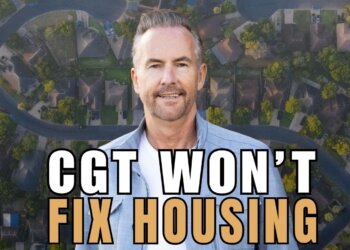An end to Waikato’s rental housing shortages will not happen until developers cease adding “restrictive covenants on developments”, one leading developer says.
Waipa District Council is due to release land for new housing cells in both Cambridge and Te Awamutu to accommodate the demand for an estimated 13,200 new homes.
Developer John Kenel is calling on developers and councils to relax the rules on dwellings and allow some room for investment into rentals.

His company Assured Property has been investing in Waikato housing for 20 years and developing for over a decade.
“Recent stories published highlighted the need for investment properties built where housing can provide incomes,” said Kenel.
“This investment is needed to increase rental stock and alleviate pressures felt on the market.
“The issue is, there is nowhere in Cambridge investment like this can be made.”
Kenel is an advocate of building two for one, where the floor area plan allows for a four-bedroom home to also include a two bedroom unit and garage within the structure.
A joint developer and council rejected the concept after the company applied for resource consent to build in the Mahy Way development.
“Their opinion of our plan was it contravened the covenant and wasn’t consistent with the intentions of the developer for the subdivision, he said.
“The covenant stated we couldn’t erect more than a single dwelling house on the lot, designed for the occupation of a single family.
“In today’s economy, new spacious homes designed with additional space allows for elderly parents to live with family has become a necessity for some.
“So why not let the area to provide independence or be used to derive an income.
“Building two bedroom homes in Cambridge is no longer viable, and people aren’t going to pay $400,000 to $500,000 for a section and build a two bedroom home on it.”
Kenel said covenants that insist on building large houses were “detrimental to first home buyers”.
He suggested looking to Chile and how they were dealing with their housing shortage.
“In Chile the government is investing $10 billion over the next 20 years on new social housing units which can increase in value over time.”
Using the concept of incremental housing was a simple process of delivering houses to buyers at earlier developmental stages rather than waiting for it to be fully finished.
The concept enables buyers to buy a house at a much lower price and allows them to complete it themselves when time and finance is available.
Kenel believes the idea could be a hit with New Zealand’s number 8 wire thinking and the handyman.
‘Its similar to a New Zealand family erecting a kitset house, moving into it and finishing it later except in Chile they do it on a large scale.”
Earlier this year the Waipa District Council acknowledged the need for more housing moved forward its release of land earmarked for growth.
Three housing cells covering 306 hectares should provide an additional 3650 homes spread across developments in Cambridge North and west of Cambridge Rd.
Although it has commenced infrastructure plans, community consultation on the type of development is still underway.
The Council’s Future Waipa Plan looks for a mix of residential homes and compact semi-detached terrace housing.
Article written by Mike Bain from stuff.co.nz







